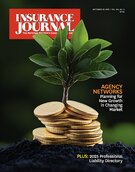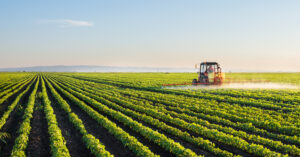
Sowing Uncertainty
“Farming in the U.S. will change. The fields will all be green. The question is: What grows? And for what purpose? And at what price? It takes time for those chess pieces to move around the board, and we’re kind of in that period today.”
— Gerrit Marx at the annual Farm Progress Show in Illinois. Marx, chief executive officer of CNH Industrial NV, noted that growers are trying to figure out how to adapt to shifting conditions as tariff tensions are making the North American farm market the most uncertain in the world, even as conditions in Europe and Asia start to improve.

Water Flowing Underground
“If you build a smaller tunnel, OK, it’ll be cheaper, but it can carry less water, so what have you saved? Have you reduced the flooding upstream by an inch? And are you going to spend multimillions of dollars to do that? Well, maybe that’s not worth it.”
— Larry Dunbar, a veteran water resources engineer who has advised Houston, Texas-area governmental agencies on drainage issues, commenting on an initiative to hire Elon Musk’s Boring Co. to build two 12-foot tunnels at a cost of $760 million. Initial proposals for the flood mitigation project suggested 30- to 40-foot diameter tunnels.
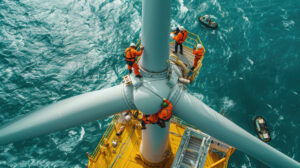
Turbine Turmoil
“A ‘stop-work order’ is the fancy bureaucratic term, but it means one thing: throwing skilled American workers off the job after they’ve spent a decade training, building, and delivering.”
— Sean McGarvey, president of North America’s Building Trades Unions (NABTU), reacting to the Trump administration’s order to halt work on a nearly completed wind farm off the coast of Rhode Island. NABTU said the order affected the jobs of 1,000 members. ISO New England, which operates the grid for 15 million people in six states, said the company has included the project in its analysis of near-term and future grid reliability.
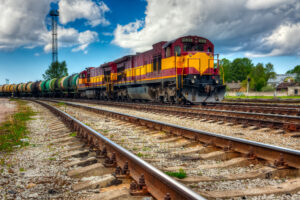
Safety Efforts Derailed
“We had an opportunity as a group to make things better and make things safer, and we didn’t do it. Think about how much better and how much safer it could be if we could add all of those 120,000 employees into the mix and all of those operations of hundreds and hundreds of trains a day all across the country.”
— Jim Mathews, president and CEO of the advocacy organization Rail Passengers Association, commenting after none of the nation’s largest freight railroads joined a voluntary federal close call program designed to prevent accidents. Amtrak and smaller freight and passenger railroads do participate, reducing accidents by approximately 20%.
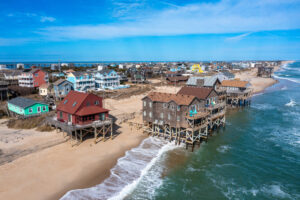
Sand, Surf, and Stability
“It’s like a toothpick in wet sand or even a beach umbrella. The deeper you put it, the more likely it is to stand up straight and resist leaning over. But if you only put it down a few inches, it doesn’t take much wind for that umbrella to start leaning. And it starts to tip over.”
— David Hallac, superintendent of the Cape Hatteras National Seashore, commenting on beach homes collapsing along North Carolina’s Outer Banks. Some areas lose up to 15 feet of beachfront a year, and two homes recently fell during Hurricane Erin. At least 11 other houses have toppled into the surf over the past five years.

Feel the Heat
“It’s very easy to underestimate how dangerous heat is. People are usually used to thinking of heat as something that makes them uncomfortable, and that they can tough it out. This type of heat will kill.”
— Abby Wines, Death Valley National Park’s acting deputy superintendent commenting on park visitors seeking out the extreme heat. Death Valley holds the record for the hottest temperature ever officially recorded–134 F (56.67 C) in July 1913–although some experts say the record was 130 F (54.4 C) in July 2021. In the U.S., heat kills more people than all other weather events combined, according to the National Oceanic and Atmospheric Administration.
Was this article valuable?
Here are more articles you may enjoy.


 State Farm Inked $1.5B Underwriting Profit for 2025 but HO Loss Persists
State Farm Inked $1.5B Underwriting Profit for 2025 but HO Loss Persists  Marsh Awarded Injunction Against Former Employees Now With Howden US
Marsh Awarded Injunction Against Former Employees Now With Howden US  Meta Loses Insurance for Defense in Major Social Media Addiction Litigation
Meta Loses Insurance for Defense in Major Social Media Addiction Litigation  Resilience: Cyber Risk Shifts From Disruption to Long-Tail Losses
Resilience: Cyber Risk Shifts From Disruption to Long-Tail Losses 